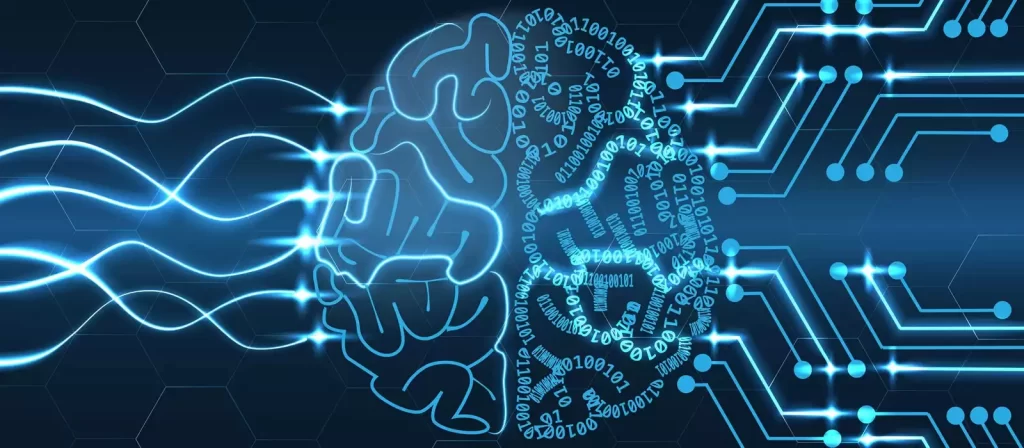
In recent years, Artificial Intelligence (AI) is one of the greatest milestones. We use this new technology on a regular basis, both consciously and unconsciously. Think of smart home systems, Apple watches, autopilots, and self-driving cars. With these opportunities, AI is able to make our lives easier, simpler and more effective. We are ready and willing to find ways to replace our most tiresome chores with AI systems such as Alexa, Siri and self-driving cars. In this way AI takes up a more prominent role in our lives. Some people believe that this will allow us to devote more time to more important issues, and that as a result, we will become more intelligent. On the contrary, we believe that we will rely too heavily on AI systems which causes us to lose particular skill sets. Therefore we believe that as Artificial Intelligence is becoming more intelligent, humans become less intelligent. The Cambridge Dictionary defines intelligence as “the ability to learn, understand, and make judgments or have opinions that are based on reason”. We believe that AI will negatively impact these abilities. In this article, we will show you why we think AI makes us dumb.
“People are getting dumber. That’s not a judgment; it’s a global fact.”
Evan Horowitz – FCLT Global’s director of research communication
The Flynn effect
Before we start, let’s consider everything that AI has brought to our lives. The capabilities of AI applications are endless, it includes assistance in traffic, recommendations of movies and music, voice-controlled personal digital assistants, self-driving vehicles, Natural Language Processing (NLP), and a variety of other powerful predictive capabilities. These new technologies provide us with new choices and options, which leads to a whole new level of decision making. An important feature of AI is that it is able to acquire us information within milliseconds. Most of the time, we are exposed to a large ocean of knowledge that is constantly passing by. Our brains must work hard to keep up and process all of the information that is supposed to make us smarter. This theory is known as The Flynn Effect. Because of more access to information and better nutrition than prior generations, an increase in average IQ happened in the 20th century. But according to new research, the Flynn effect may be reversing. FCLT Global’s director of research communication, Evan Horowitz, stated: “People are getting dumber. That’s not a judgment; it’s a global fact.”
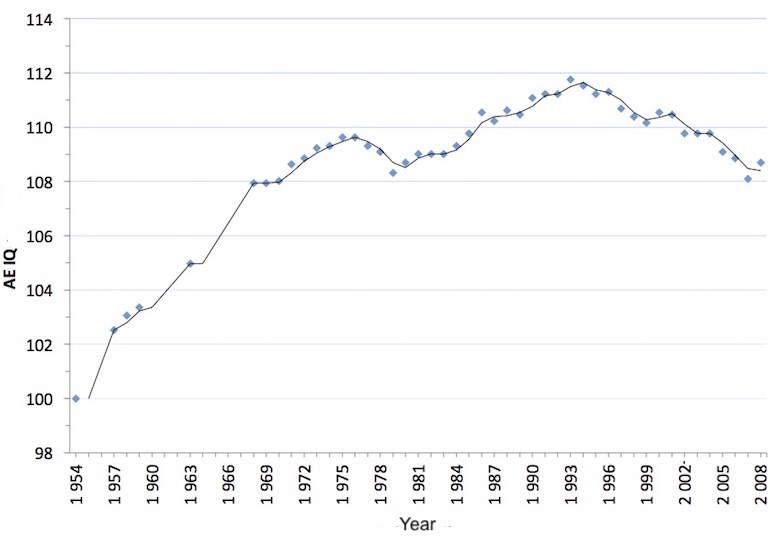
Recent studies in Denmark, Norway, and the United Kingdom have also revealed a significant slowing — and even reversal — of IQ due to technological changes. According to Peter Dockrill’s 2018 ScienceAlert article, “an analysis of some 730,000 IQ test results by researchers from Norway’s Ragnar Frisch Centre for Economic Research reveals the Flynn effect peaked for people born in the mid-1970s and has significantly declined since.“
Focus and concentration
A major source of concern is a lack of focus, which not only reduces overall intelligence but also impairs our ability to stick with complex tasks and the ability to make wise decisions. An example is people who experience difficulty when reading large papers or essays. Due to increased usage of technologies such as the Web they have to fight to stay focused on long pieces of writing. While, before this new technology was enabled, they used to be masters in reading long papers. People who deal with this problem state that their way of thinking has changed. This change has been confirmed by a study conducted by scholars from the University College London. They have found that we are indeed in the midst of a change in the way we read and think. They saw that due to the enormous amount of information that people are exposed to daily, people exhibit a form of skimming activity. This form of skimming activity is defined as hopping from one source to another and rarely returning to any source they have already visited. They typically read no more than one or two pages of an article or book before they would “bounce” out to another site. Sometimes they’d save a long article, but there’s no evidence that they ever went back and actually read it.
Another study, from Utrecht University, investigated the effect of using intelligent systems. Two independent groups were compared, one group made use of an intelligent system that offered a great deal of aid while the other group made use of a simpler system that provided no assistance. Both groups were asked to perform analytical and planning tasks that required the usage of one of the systems. The results of this study showed that the group that made use of the simpler system was able to better understand relevant tasks, and were less affected by a severe interruption in the workflow. The participants who worked without the intelligent system were “more plan-based, are more proactive and ready to make inferences. This in turn results in more focus, more direct and economical solutions, better strategies and better imprinting of knowledge”. While the group that made use of the supposedly helpful software actually short-circuited their thinking and learning.
It is also affecting our emotional intelligence, as we suffer from decision fatigue as a result of too much technological stimulation. Technical stimuli are influencing the four components of emotional intelligence. The four components are self-management, self-awareness, social awareness and relationship management. Technology can lead to an inability to think or function in society. An article in psychology today also touched upon the effect of technology on the developing brain. They have found that chronic stress due to technological stimulation is affecting the frontal lobe in children. This will lead to issues in focus, the ability to manage and suppress emotions and to manage complete tasks.
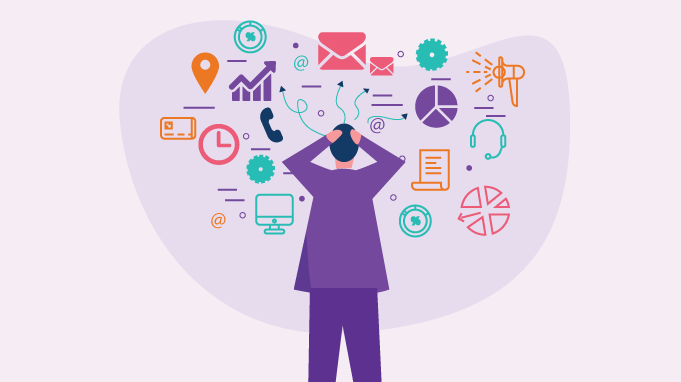
Since technology is so widely used and increasingly replaces direct human activity in a variety of ways, we are forced to do less. The existence of AI encourages a lack of attentiveness and focus. We must not allow ourselves to become complacent. Human control and alertness are still required in many circumstances to ensure that everything works properly and to intervene when necessary to avoid mistakes. The first death in a Tesla autonomous driving accident, for example, was caused by a combination of the system mistaking a white truck for the sky and the driver’s total lack of attention/ focus.
Being dependent of AI systems
Automation systems are more and more integrated into our lives. Think of autopilots, self-driving cars, machines in factories and so on. In many ways automation has contributed to improvements in our daily lives, but what will happen to our own intelligence if AI will perform the majority of our daily tasks?
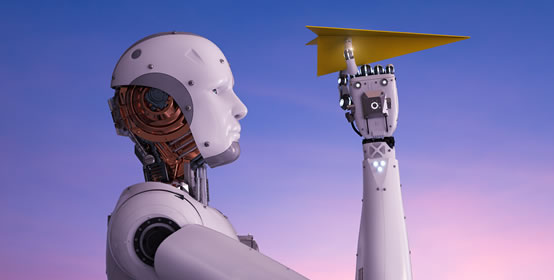
Aviation is one of the areas in which automation plays a dominant role. Pilots can make use of automation when flying an airplane. There is no doubt that autopilots have contributed to improvements in flight safety. It is able to warn problems on time, it can keep a plane airborne whenever the crew is disabled and it reduces pilot fatigue. However, an ergonomics expert at Britain’s University of Bristol argues that an overuse of automation erodes pilots’ expertise and dulls their reflexes. This is called deskilling and the potential of professional skills degeneration due to a high reliance on automation is something to be concerned about. Nowadays, too many pilots thrust abruptly into making mistakes whenever the autopilot is out of order. This reveals that automation, for all its benefits, negatively affects the performance and talents of those who rely too much on automated systems. The implications go well beyond safety. Automation alters how we act, how we learn, and what we know, it has become an ethical issue.
But deskilling is not only seen at work. Even in our daily lives, we de-skill in certain areas due to the introduction of technology and AI. Knowledge that is not practiced is lost. Take basic mathematics for example. How many people can still do math by heart without having to ask Siri or using their phone calculator? Students and employees no longer believe it is required to think and analyze beyond the capabilities of the machine, an iPhone app, or another built-in device.
Some believe that there is a hierarchy of human activities. As explained by Whitehead: “Every time we off-load a job to a tool or a machine, we free ourselves to climb to a higher pursuit, one requiring greater dexterity, deeper intelligence, or a broader perspective”. The overall idea is that we might lose something with each upward step, but in the long run we gain something far greater. This is exactly what people believe when it comes to automation. People think that it saves us time to do things for a higher pursuit, but doesn’t otherwise alter the way we think or behave. That view is called the “substitution myth”. A device that saves us labor doesn’t just provide substitutes for some isolated component of a job or other activity. It changes the character of the entire task, including the roles, attitudes, and skills of the people involved. This point of view is shared by Parusaraman and his colleague, who explained that “Automation does not simply supplant human activity but rather changes it, often in ways unintended and unanticipated by the designers of automation.”
A device that saves us labor doesn’t just provide substitutes for some isolated component of a job or other activity. It changes the character of the entire task, including the roles, attitudes, and skills of the people involved.
Psychologists found that when people work with computers, they often fall victim to two cognitive ailments. It leads to complacency and bias that can weaken the performance and lead to mistakes. When we work with computers we trust the machine as if it will work flawlessly and as if it will be able to handle any problem. In this way we will fall into a false sense of security, which leads to automation complacency. We will disconnect from our surroundings and become disengaged from our work. Automation bias occurs when we believe every piece of information that is provided by intelligent systems. This leads to ignorance or discount of other information sources, including our own eyes and ears. Even when a computer provides insufficient or incorrect data, we remain blind to the error.
This bias and complacency is already happening to radiologists that make use of analytical tools to highlight suspicious areas on body scans. Usually, the tools help to detect diseases (in an early stage). However, the radiologists can experience an opposite effect in which they do not pay attention to the areas that were not highlighted. This effect is not only happening to radiologists but also to ourselves. We become less proficient proofreaders when writing an e-mail or essay when we know that a spell-checker is doing the work for us.
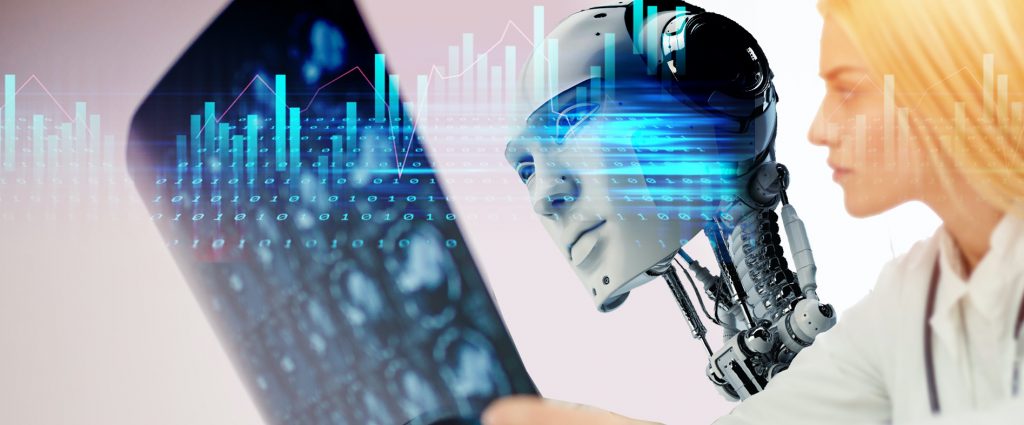
According to psychologist Patricia Greenfield, screen-based technologies have led to the “widespread and sophisticated development of visual-spatial skills”. Despite the development in visual-spatial skills, our capacity for the kind of “deep processing” that underpins “mindful knowledge acquisition, inductive analysis, critical thinking, imagination, and reflection.” has weakened.
The way we make decisions is also being influenced by our reliance on AI; we are becoming more hesitant to make decisions. People make more errors when they are pushed to make decisions without the advantage of information. The University of Albany concluded that software “diminished doctors’ ability to make informed decisions regarding diagnosis and treatment” in a study of 78 primary care physicians. This is not what you want to hear if you’re on the operating table and the internet goes down.
The Jeeves effect

In 1915, a series of comedic short stories and novels was published by English author P. G. Wodehouse. In the novels, there is a highly competent butler named Jeeves, who works for Bertie Wooster, a wealthy and idle young Londoner. Bertie Wooster got away with being a dumb jerk in the novels because he had Jeeves to back him up with superior brain power. The Jeeves Effect refers to the fact that humans risk being less intelligent because machines will do their thinking for them.
AI is embedded in many aspects of modern life for the simple reason that intelligent machines can already outperform humans in many areas. In the future, the AI assistant will evolve to the point where it can fulfill requests like: ‘Organize a dinner party for six on Thursday, Jeeves, and invite all the usual suspects.’ Our long struggle with difficult assignments would have come to an end at that point. We can relax knowing that the hard work of planning and organizing is being handled by a smarter brain. Unfortunately, this will result in our brains regressing because we will be deprived of mental effort.
Conclusion
As we’ve seen, there are a variety of arguments claiming Artificial Intelligence is making us dumber. For example, it is a known truth that technology is lowering the average IQ of the world’s population (the reversing Flynn Effect). This is because AI makes us less focused and reduces our concentration span. Furthermore, we become overly dependent on AI and, as a result, lose some skills and our ability to make decisions. Finally, because we will let AI handle everything for us, our brains will regress due to a lack of mental effort.
It is critical that we take action to counteract this. We cannot lose our intelligence, as it is one of the most significant characteristics that distinguishes us as human beings. One way to tackle this is to reduce our reliance on AI. We can limit the amount of work we delegate to AI. We should strive to do as much as possible without the use of AI. And only use AI as an aid instead of a replacement. For example, if we possess a self-driving car, we should occasionally drive it ourselves to maintain our driving skills.
In the end, it’s all about practice. The more we rely on advanced AI to do a variety of jobs, the less we believe experience is needed. However, because of how reliant we have become on advanced tech, we are unsure how to manage unexpected occurrences. If we stop and use our brains more instead of relying on Siri, Alexa or other AI to do the dirty work for us, AI machinery will not be able to compete with our brain. After all, we are the masterminds behind the AI development!


